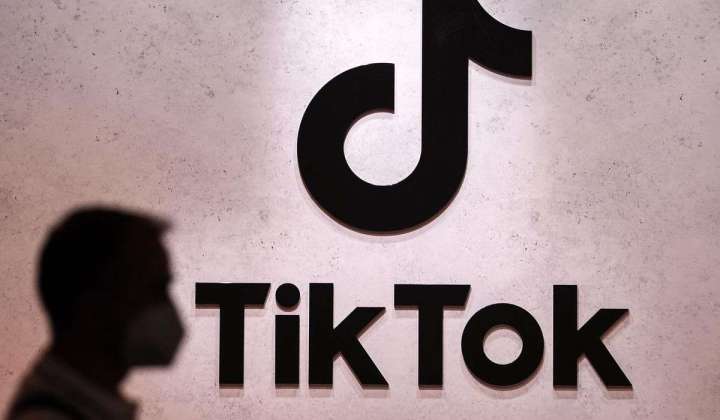TikTok aims to give Biden administration more control as Congress, state officials circle

TikTok is prepared to give federal agencies veto power over a new board of directors to govern its restructured U.S. operation, in order to kill national security concerns threatening to dismantle the popular social media platform’s American presence and cut off tens of millions of U.S. users.
Details of the plan to give the Biden administration more authority are emerging as nearly half of U.S. states have enacted restrictions limiting the platform’s use on state officials’ devices. In Washington, lawmakers in the new Republican-controlled House are preparing to grill TikTok‘s CEO about the company’s operations and relationship to the government in Beijing.
The company is offering to address concerns about its China connections by forming a new entity called TikTok U.S. Data Security.
According to a TikTok official, the new operation will be governed by a three-member board of directors who are each approved by the Committee on Foreign Investment in the United States, the Treasury Department-led interagency panel that reviews commercial transactions for national security problems.
The committee began a review of TikTok during the Trump administration amid concerns that Americans’ data could fall into the hands of China’s government via the platform’s China-based parent company, ByteDance. Critics say China’s civil-military “fusion” policies require private businesses to cooperate with requests from the communist regime.
President Biden’s administration has continued the security review and a Treasury Department spokesperson for the committee did not respond to requests for comment on Tuesday including regarding whether the review is nearing a conclusion.
TikTok has not yet identified the members it wants to lead the U.S. operation’s board, but the underlying managers at TikTok U.S. Data Security include interim General Manager Andy Bonillo and interim security officer Will Farrell. Both managers list Washington, D.C., as their base of operation on LinkedIn and Mr. Bonillo has acknowledged courting allies in the fight.
“In an effort to get the word out on the amazing work my TikTok team is doing, we briefed academics, think tank scholars and others about an important initiative we’ve been working on for over two years,” Mr. Bonillo wrote on LinkedIn earlier this month. “This initiative has centered on designing and building a comprehensive framework to isolate U.S. user data, enhance security, and address U.S. national security concerns.”
The new U.S. company is expected to have 2,500 employees subject to a vetting that ensures they meet requirements outlined in the terms of any forthcoming agreement, according to a source familiar with the proposed deal.
To ease concerns that U.S. user data would be accessed by Chinese officials, TikTok’s new entity is teaming with U.S.-based computer giant Oracle. TikTok plans to have every line of computer code entering its systems reviewed by Oracle.
China’s nationalist press has criticized the campaign against TikTok as “typical economic bullying” by U.S. officials against the most prominent social media success story not founded in the U.S., resorting to “security concerns without any factual basis and evidence.”
“The best explanation for the U.S. crackdown is that the American economic hegemony won’t allow a Chinese company capable of challenging the competitiveness of its U.S. counterparts, especially in emerging internet-related sectors which represent the future development of the global economy,” the state-controlled Global Times wrote in an opinion piece Tuesday in Beijing.
Ready for a fight
But TikTok’s plan for its American subsidiary seems unlikely to dissuade U.S. lawmakers who appear ready for a fight with the popular social media platform.
Congress passed a ban restricting federal officials’ use of TikTok on government devices late last year and Sen. Josh Hawley says the Biden administration must enforce the law.
The Missouri Republican wrote to the Office of Management and Budget on Friday that he had not seen any signs that it was implementing the “No TikTok on Government Devices Act.”
“Quite frankly, the executive branch should have done this long ago, without the need for congressional action,” Mr. Hawley wrote to the OMB director. “I therefore urge you to expedite your agency’s guidance and ensure total compliance within the statutory timeframe.”
Mr. Hawley introduced a bill proposing a broader ban last week.
House investigators are digging into TikTok’s operation too. House Energy and Commerce Committee Chairwoman Cathy McMorris Rodgers said Monday that TikTok CEO Shou Zi Chew would appear before the committee in March.
The Washington state Republican said it is high time for TikTok to answer the committee’s questions.
“ByteDance-owned TikTok has knowingly allowed the ability for the Chinese Communist Party to access American user data,” Ms. McMorris Rodgers said in a statement this week. “Americans deserve to know how these actions impact their privacy and data security, as well as what actions TikTok is taking to keep our kids safe from online and offline harms.”
If TikTok manages to resolve the federal government’s concerns it will still face scrutiny from the states. More than 20 states have already banned TikTok’s app on state-owned devices and several universities are also implementing restrictions. The list of schools enacting bans in recent weeks includes Arkansas State, Auburn, Georgia, Idaho State, Iowa, Oklahoma and Wisconsin.
• This article was based in part on wire-service reports.






